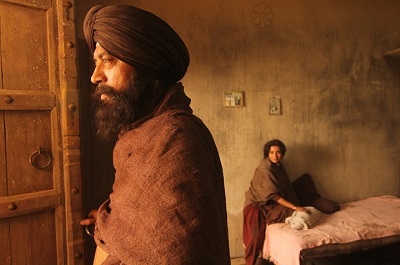
- Direction

- Acting

- Screenplay

- Cinematography


Filmmaker Anup Singh’s “Qissa: The Tale Of A Lonely Ghost” is a magic realist tale that addresses the all-consuming spectre of patriarchy that has been plaguing the Indian society for centuries, and still continues to do so. Set during partition, Umber Singh (played by Irrfan) plays a father who, in his desperate yearning for a son, chooses denial at the expense of the sanity of the women in his family.
The film largely deals with the oppression women face in the period it is set in (1947), using symbolism and supernatural elements to make the story a parable on the dangers of patriarchy. It gets off to a promising start pursuing the ambiguities that surround Kanwar’s birth, childhood, and adulthood and the identity crisis that stems from it. But in the second half, though the drama is carried over, it becomes clearer that the characters (and their actions) are contrived as embodiments of ideas related to masculinity, femininity and gender politics.
The film remains somber for most of its runtime where even the lighter moments - the playful dynamic that Umber’s children share, the mild flirtations between Kanwar and Neeli - play out with an air of dread. Women in the film are largely cast as victims (which is not wholly untrue), but in its depiction of an oppressive patriarchy there is never a sense of the beauty sacrificed at its altar (something the film makers might assume as a matter of common sense).
In its pursuit of symbolism and melancholy, it forsakes endearing the audience to any of its characters. Neeli (played by Rasika Dugal) is the only likable character, In her playfulness, impulsiveness and her acceptance of Kanwar. But these are stereotypes of femininity perpetuated in the film (which can be seen as a by-product of the film’s period setting).
Overall, the film forgoes endearing characters to become an indictment of patriarchy which works until it gets lost in its own symbolism.
















